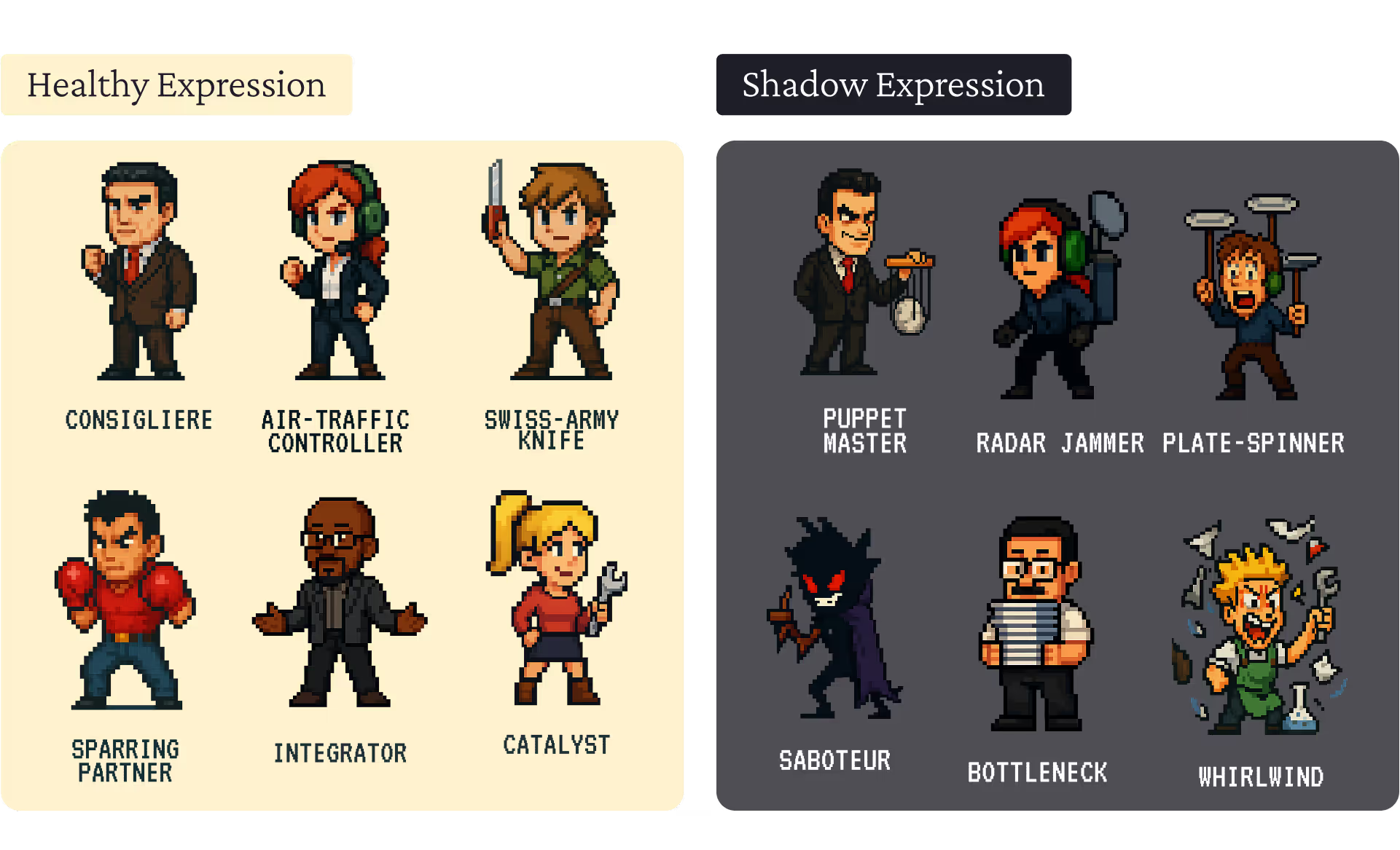Today’s post comes from Claire Podulka, the Chief of Staff at digital product innovation firm TXI. In her role, she supports the organization in delivering engaging experiences and custom software to companies ranging from startups to Fortune 100s.
She serves as a trusted advisor to senior executives and owns organizational results for a team of 70+, ultimately making TXI more effective, sustainable, and transparent. Prior to joining TXI, she spent the majority of her career in education and led content development as managing editor for ThinkCERCA, an award-winning edtech literacy product.
The following is a version of her recent talk “Priority should be singular” at the Chicago Chief of Staff Summit on November 16th, 2023:
I am obnoxious when it comes to language.
I’ve spent time in my life as a poet, a journalist, and a copy editor. I care about words, what they mean, and how to use them effectively.
People who are less pedantic than me about language make a lot of casual mistakes. Take plurals, for instance. If someone were talking about the audience for this blog, they might describe them as Chief of Staffs. And I would have to hold myself back from shouting: Chiefs. Chiefs is the noun. Of staff is the modifier. You pluralize the noun in English!
Based on that, you've got a good sense of who I am. To give you slightly more context, after spending a while as a copy editor for an educational publisher, I pivoted into edtech, and then into tech consulting, where I grew from a project manager to the executive team, currently serving as Chief of Staff at TXI, a digital product innovation firm.
There's a word that comes up frequently when you're talking about our work as Chiefs of Staff, and that's priorities. Plural. I hate it.
Not because it's wrong. You'll read plenty of articles about how priority as a word in English started to be used around 1400, and was only ever used in the singular until about 1940, when a change in business culture made it more urgent for us to take on lots of work at once. Some of these people will argue on that basis that "priorities", plural, is a made-up word.
First of all, all words are made up. That's how words are. Besides that, words change in usage and meaning all the time. The word "literally" comes to mind, or "they" as a singular gender-neutral pronoun. These are words that we might have learned one thing about in elementary school and understand differently now.
But that's not what's going on with priorities. The thing that I hate about priorities, plural, is that it has secret meanings that we're not saying out loud. It doesn't just mean "two or more things that are important." It means something much worse for our organizations, and as Chiefs of Staff, the people often charged with clarifying, aligning, and executing on the most important work, we need to unpack it.
When we say priorities, we mean that we don't have a clear vision. If we had a clear vision, we would know which outcome will bring us closest to that vision. If our organizations are clinging to multiple priorities, it could mean the vision is too vague for us to understand exactly what work makes the vision a reality. Or it could mean that our whole team is not aligned on the vision, so some leaders are focusing on work that's important to them rather than to the shared vision for the organization.
When we say priorities, we also mean that we're scared to make a hard trade-off. It means that we aren't confident that we'll be successful at any one initiative and so we want to hedge our bets. Or it means that we don't want to disappoint any of the multiple stakeholders that we're trying to serve, and so we don't want to pause or drop any of their favorite projects.
Finally, when we say priorities, we could also have fallen into the habit of busy-ness. Despite more focus recently on a reasonable work-life balance, hustle culture is still unfortunately alive and well. If you're continually seeing that your principal or your organization is picking up more than they can carry, they may have bought into the false idea that busy = important.
So what do we as Chiefs of Staff do about it?
- First, you need to know which of these drivers is leading your team to hold onto multiple priorities. Use the curiosity and critical thinking that are already well-sharpened tools in your toolkit. Listen for what's being said and not said during conversations about investments and where people's time and effort are going. You might even hold 1:1s with a variety of stakeholders to get a more holistic and honest perspective on why there are so many things in flight. Synthesize what you hear and draw a reasonable conclusion.
- Once you understand the root cause, share your analysis with your principal or leadership team. Remember to anonymize the data as needed but to provide as much specificity as you can for the analysis to make an impact.
- Then you can collaborate to address the cause - or causes - directly. Frankly, it's more important that you get real alignment on a clear vision and feel confident in your team's decisions than it is whether you have one or two or twenty priorities.
These are hard conversations and hard decisions - hard to make and hard to stick with. But they're well worth having to help our organizations move forward more effectively. And as Chiefs (plural noun) of Staff (singular modifier), that's our goal.





.avif)
.avif)








